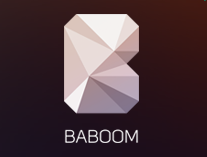[Most Recent Entries] [Calendar View]
Thursday, October 2nd, 2014
| Time | Event |
| 9:32a | Kim Dotcom & Baboom Sever All Ties
In addition to being the first Dotcom collection distributed commercially, the album was also notable for soft-launching Baboom. The fledging music service was to provide the platform for the entrepreneur’s assault on the major label-controlled recording business. From the beginning Baboom’s stated aim was to disrupt the music industry by closing the gap between artists and fans, rewarding the former with most of the profits. The latter would be put in a win-win situation via free ad-supported music streaming. The one constant that remained throughout was Kim Dotcom himself, a person with whom the service was inextricably linked, both financially and from branding and marketing perspectives. Today, however, that has all come to an end. According to a new Particulars of Shareholding document filed this morning, Coatesville Trustee Services Limited – Dotcom’s family trust – has sold all of its shares in Baboom. Before the sale Michael Sorensen’s Vig Limited, which also holds 13044 shares (9.97%) in Mega.co.nz, held 45% of Baboom’s shares. Company documents reveal that Vig now owns 90% after Dotcom’s family trust shares were transferred to the company. The new Baboom shareholding
As can be seen above, the remaining 10% is held by Xavier Buck of Dicé Invest. In November 2013, Buck, who is also a director at Domaintools, said he would be heading up MEGA Europe. Perhaps the most curious element of Dotcom’s exit from the business is the language being used by Baboom chief executive Grant Edmundson. While he wishes the Baboom founder well, a single sentence distances Dotcom from the company in every possible way. “The transaction means Dotcom no longer has any equity or role in Baboom, nor any relationship with the company,” Edmundson said. “Kim is moving on to focus on other projects and both camps wish each other well with future plans.” TorrentFreak spoke with Edmundson and asked if Dotcom’s exit from the company had been his choice alone, Baboom’s, or by mutual agreement. He told us that he would not comment on matters between shareholders. However, when questioned on whether Baboom’s brand would be affected by the departure of its founder, Edmundson was more forthcoming. “In terms of the impact on Baboom, my view is that the Baboom service will now be able to be judged on its own merits rather than being assessed on the brand equity (or otherwise) of its shareholder base,” the Baboom CEO said. Kim Dotcom did not immediately respond to a request for comment. Baboom is currently trying to raise US$3.98m (NZ$5.05m) and a listing on the Australian Securities Exchange. The company sought to raise the funds from investors in return for 11.5% of its shares with the offer closing in July, but that deadline was amended to make it open-ended. Baboom is scheduled to debut in the fourth quarter of 2014, although no firm launch date has been provided by the company. Update: Kim Dotcom has taken to Twitter: Source: TorrentFreak, for the latest info on copyright, file-sharing and anonymous VPN services. |
| 4:30p | Google Asked to Remove Half a Billion “Pirate” Search Results
These requests have increased dramatically over the years. In 2008, the search engine received only a few dozen takedown notices during the entire year, but today it processes a million per day on average. Adding up the numbers reported in Google’s Transparency Report, we found that since the release of the report three years ago Google has been asked to remove over 500 million links to allegedly infringing webpages. The number of notices continues to increase at a rapid pace as nearly half of the requests, 240 million, were submitted during the first months of 2014. The graph below illustrates this sharp rise in takedown notices.  Most of the reported webpages have indeed been removed and no longer appear in Google’s search results. As an example, more than two million Pirate Bay pages have quietly been wiped from Google. TorrentFreak asked Google for a comment on the most recent milestone but the company has chosen not to respond on the record. Despite the frequent use of the takedown process many copyright holders aren’t happy with the way things are going. While Google does its best to comply with its obligations under current law, some industry insiders claim that the search giant can and should do more to tackle the piracy problem. The UK music industry group BPI, which is responsible for roughly 20% of all submitted URLs, points out that Google should do more to lower the visibility of unauthorized content in its search results. Despite promises to do so, the music group still sees very little improvement on this front “Despite its clear knowledge as to which sites are engines of piracy, Google continues to help build their illegal businesses, by giving them a prominent ranking in search results,” BPI told us last week. “Google can simply fix this problem by amending its algorithm. We hope they will respond positively to the invitation from Government to negotiate voluntary measures to do so.” The BPI and other copyright holders are pushing for some sort of agreement to implement more far-reaching anti-piracy measures. However, thus far Google maintains that it’s already doing its best to address the concerns of copyright holders. Last year the company released a report detailing the various anti-piracy measures it uses. However, the company also stressed that copyright holders can do more to prevent piracy themselves. Without legal options it’s hard to beat unauthorized copying, is the argument Google often repeats. “Piracy often arises when consumer demand goes unmet by legitimate supply. As services ranging from Netflix to Spotify to iTunes have demonstrated, the best way to combat piracy is with better and more convenient legitimate services,” the company previously explained. “The right combination of price, convenience, and inventory will do far more to reduce piracy than enforcement can.” While this standoff continues, copyright holders are expected to increase the volume of requests. At the current pace Google may have processed a billion URLs by the end of next year. Source: TorrentFreak, for the latest info on copyright, file-sharing and anonymous VPN services. |
| << Previous Day |
2014/10/02 [Calendar] |
Next Day >> |


 In the hope of steering prospective customers away from pirate sites, copyright holders are overloading Google with DMCA takedown notices.
In the hope of steering prospective customers away from pirate sites, copyright holders are overloading Google with DMCA takedown notices.